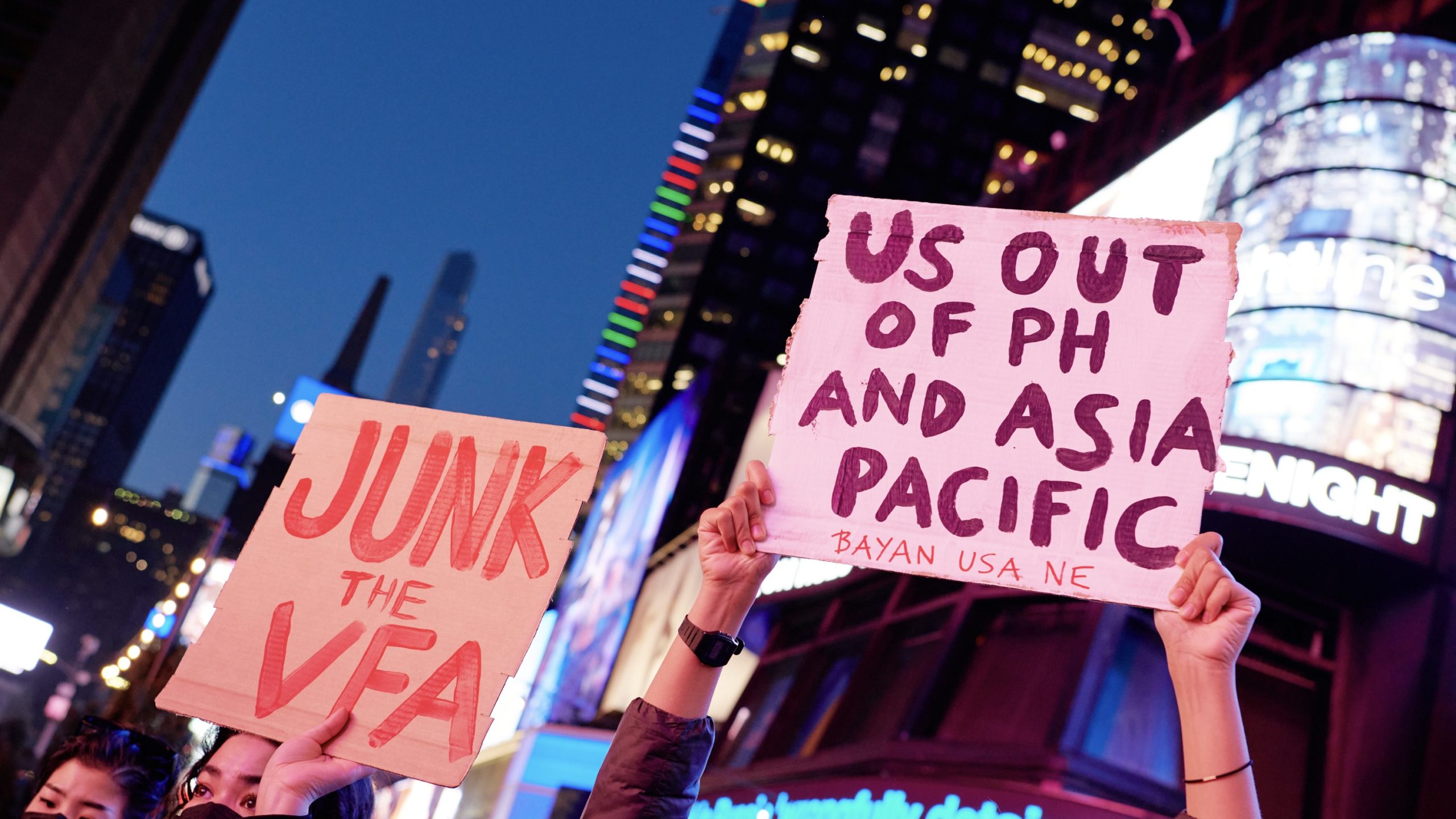The largest ever US-Filipino military exercise is currently underway in the South China Sea, despite massive international protests. The Balikatan (shoulder-to-shoulder) 2023, which began on Tuesday, April 11, has the participation of over 17,700 troops from the United States, the Philippines and Australia and is set to last until April 28.
The annual military exercises have expanded tremendously, nearly doubling in size since the last series of drills, as the administration of President Ferdinand Marcos Jr. has sought to clear the way for an increased US military presence in the country. The drills come at a time when tensions between China and the US, along with its allies in East Asia, are at their highest.
The ongoing drill will have over 12,200 US military personnel participating in one of the country’s largest overseas, along with nearly 5,400 Filipino troops and 111 personnel from Australia.
On Thursday, April 13, the troops conducted exercises with anti-tank Javelin missiles in Palawan. Other activities will include an amphibious landing training on an island facing, sinking of a decommissioned ship and the first-ever firing of weapons by US and Filipino frigates off the coast of Zambales, north of Manila, all of it near disputed maritime region in South China Sea.
The exercise, hosted by the Philippines, is occurring just weeks after the country has announced new locations for the controversial expansion of the US military presence in the archipelago. The four new sites, earmarked under the contentious Enhanced Defense Cooperation Agreement (EDCA), will act as new effective bases for the US in the coming years.
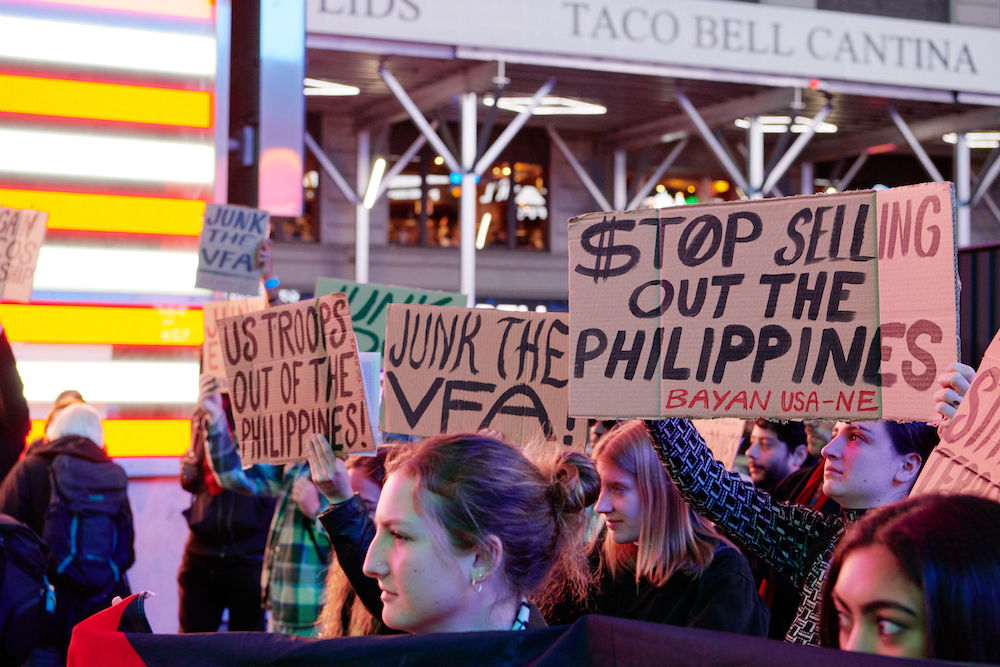
The new bases are also strategically located in areas of dispute for China, including one in Luzon near Taiwan and one in Palawan which is the closest Filipino territory to the disputed Spratly Islands in the South China Sea.
The joint statement released on Tuesday, by the 2+2 Ministerial Dialogue between military officials of the US and Philippines also suggest that the drill has geostrategic intentions.
The statement underscores the two government’s “strong objections” to “threatening and provocative activities in the South China Sea, including the recent attempts of the People’s Republic of China (PRC) to disrupt the Philippines’ lawful operations” near the disputed territory in the South China Sea, and also talks about “maintaining peace and stability across the Taiwan Strait” even though neither party has claims nor interests in the region.
Military drills met with protests
In the meanwhile, Filipinos and peace advocates in the US and the Philippines greeted the joint exercises on Tuesday, with protests. In Quezon City, progressive groups like Bayan, GABRIELA and League of Filipino Students, among a dozen others rallied hundreds outside Camp Aguinaldo, the headquarters of the Armed Forces of the Philippines (AFP), just hours before the exercises began.
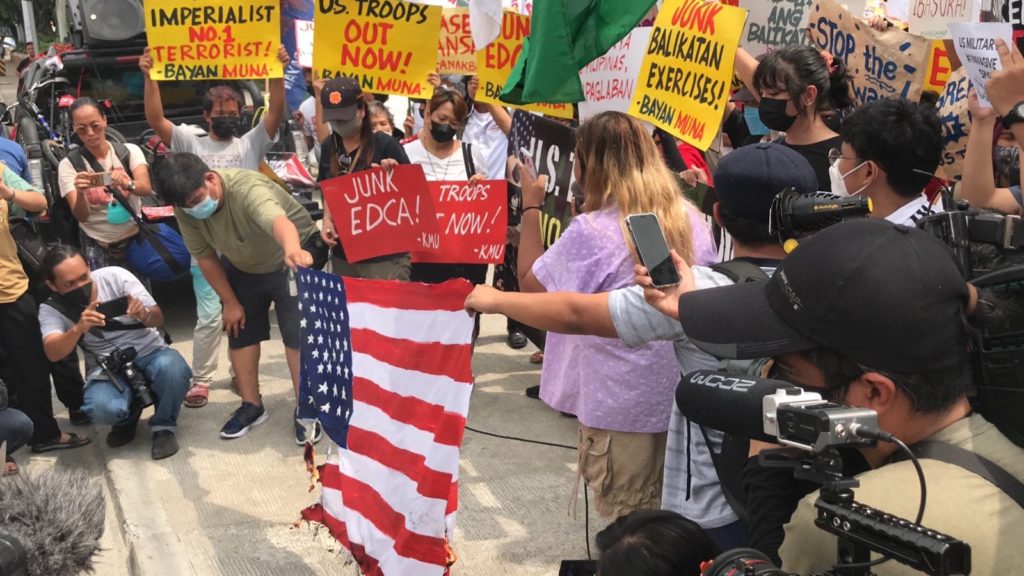
Activists were seen burning the US flag at the rally in Quezon City, where Camp Aguinaldo is located, meanwhile another demonstration was also held outside the US Embassy in Manila as the exercises were being officially launched. According to reports, some protesters allegedly hurled paint bombs at the Embassy office defacing the US seal.
Philippines authorities arrested six activists in Manila for demonstrating outside and defacing the US Embassy, including two students. The students were eventually released on Wednesday by the public prosecutor, after the police were unable to furnish any evidence to substantiate the accusation of vandalism.
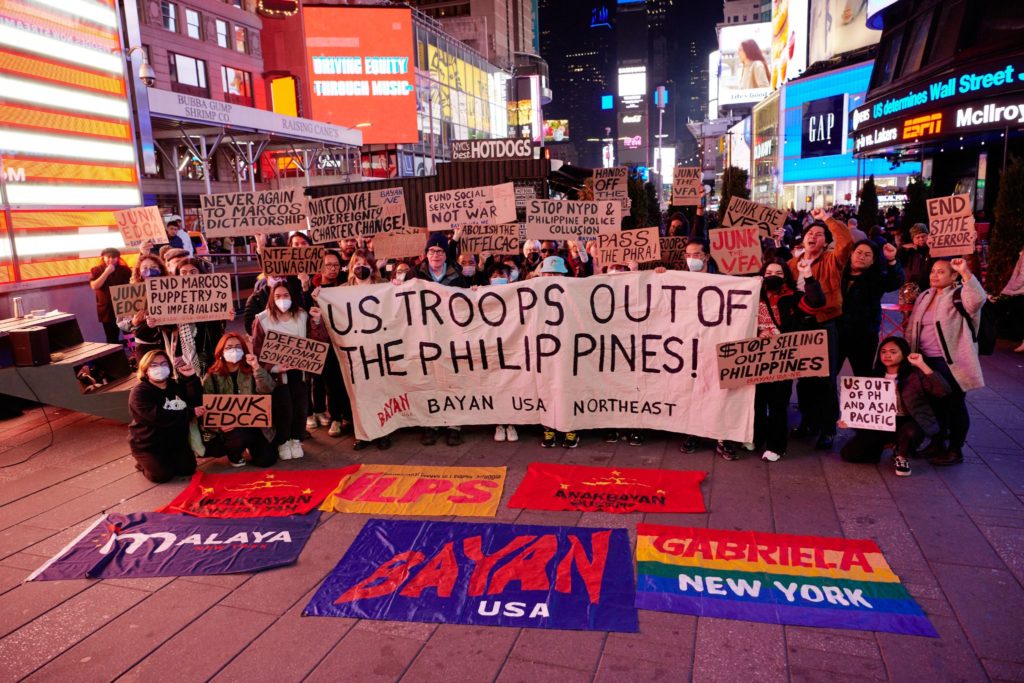
In the meanwhile, diaspora Filipinos and anti-war movements in the US also organized demonstrations against the exercises under the slogan of “Hands Off Philippines”. In New York City and San Francisco activists gathered in protest and demanded complete withdrawal of the US military in the Philippines.
“The Balikatan war games are double-trouble: a violation of Philippine sovereignty and a dangerous provocation of China,” said Pyxie Castillo of GABRIELA USA. Protesters held banners and posters that read “Junk the Visiting Forces Agreement”, an enduring legacy of US military presence in the post-WWII Philippines, which has often shielded US military personnel for crimes committed by them in the Philippines.
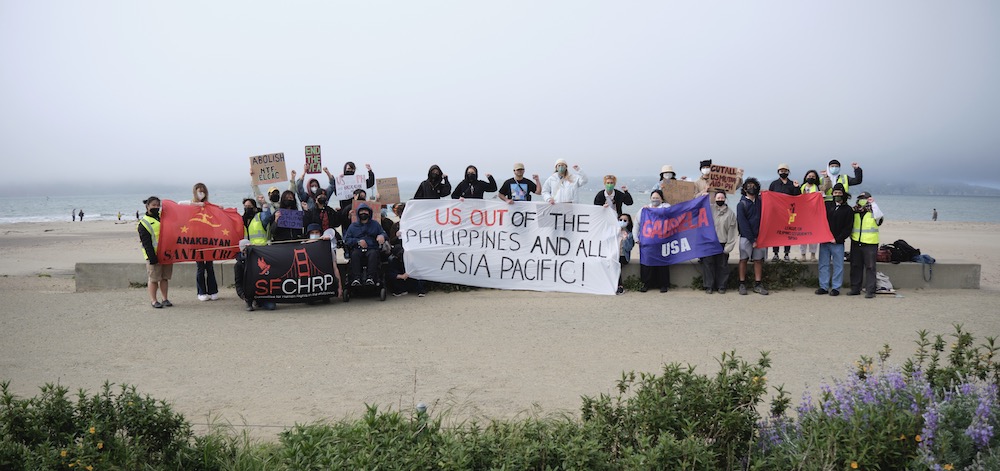
“The Balikatan war games are a violation of Philippine sovereignty and a dangerous provocation of China…We oppose US military intervention in the Philippines and reject the puppetry of Bongbong Marcos to the U.S. There is no doubt this is a build up to war in the Asia Pacific… to stoke the flames of world war. There is no doubt that we, the Filipino people, will fight tooth and nail to defend our sovereignty!” said Nina Macapinlac of Bayan USA, a US-based chapter of the Bayan. Bayan USA led the rally in New York City and received support from various US anti-war and rights groups, including New York Committee for Human Rights in the Philippines (NYCHRP) and Veterans for Peace.
“Environmental destruction and violence against women and children has come hand-in-hand with the US military.” Macapinlac’s statement is in reference to the several killings by US troops in the Philippines, including the transphobic murder of Jennifer Laude in 2014 and the institutional protection granted to her killer, Joseph Scott Pemberton.
Speaking to Democracy Now, Renato Reyes Jr, the general secretary of Bayan stated that Filipinos do not want tensions in the region to escalate. “It is not in our interest to see the conflict escalate,” said Reyes Jr. “We want peace in the region. We want respect for our sovereignty, for our sovereign rights. We don’t want incursions from China, but we don’t want to be used as a staging ground for US military intervention and hegemony in the region.”


